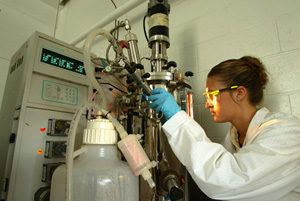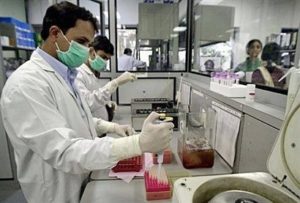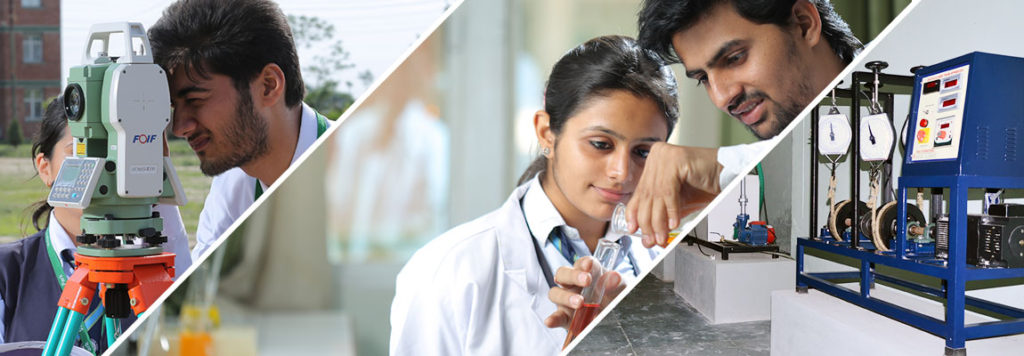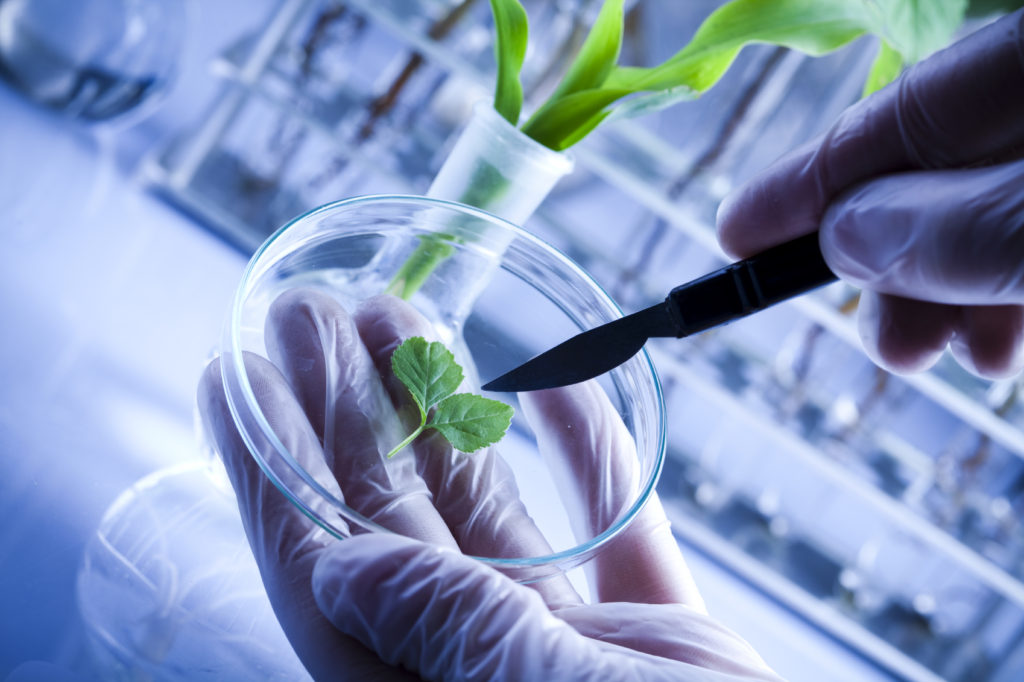Everything about B. Tech and Dual Degree (B.tech + M.tech) in Biochemical Engineering and Biotech
For starters, let’s debunk some popular myths surrounding this department. Even though the name does entail the application and understanding of basic concepts in biology, it is far from true that one needs to have a prior background in it! The department of biochemical engineering and biotechnology here at IIT Delhi (I might even take the liberty of calling it the first and only consortia of the like in the country) does a good job of amalgamating the biological analogue of classical chemical engineering – think enzymes replacing catalysts in reactors – with the boldly emerging field that biotechnology is (genetic engineering, anyone?). The designed curriculum is strewn with courses ranging from molecular biology and genetics to process control and dynamics, from downstream processing to various other transfer and transport operations. In addition to the mandatory courses, one can choose from a fascinating repertoire of electives that the department is replete with.
Here is a more in-depth analysis of the various realms of this field that one can explore at IIT Delhi:
- X-men, Spider-man and so on: Yeah, that’s right, thanks to Hollywood propaganda you are probably familiar with and fascinated by all that noise around mutation theories and genetic studies. Courses like molecular biology and genetics, cancer cell biology, basic biochemistry etc. provide an insight into how the cell machinery is built up and how it can be reprogrammed to achieve desirable traits.
- Dolly? Human Insulin? Tissue regeneration? You probably guessed it again – cloning and therapeutic biotechnology (which has gained enormous popularity thanks to research on stem cells and GMO) forms a good part of the curriculum through courses like recombinant DNA Technology, current topics in biotechnology to name a few.
- Towards a cleaner environment: This vast field of renewable energy and alternative fuels is fast becoming one of the hottest areas of research. The curriculum gives a flavor of how one who is interested might pursue this field further.
- Pfizer, Novartis, Biocon? These are the first few names that pop into one’s head when one hears “pharmaceuticalsâ€Â. A considerable part of the curriculum is designed on the two major aspects that a typical pharma industry is based on – drug design and synthesis, and downstream processing. While courses on the former give an idea of how novel drugs are synthesised (and existing optimised), courses on the latter focus on how to increase product recovery, improve yields and various other extraction, purification and separation technologies that a process relies upon.
- Data crunching and analysis: The term you’re looking out for here is “Bioinformatics†– a computational field in biology that has made possible milestones in the history of medicine such as the Human Genome Project. With how genomic data collection is getting bigger and sequencing faster than ever, leveraging the power of computers to recognise sequences, match fragments of information and spit of meaningful annotations has made possible (at least in concept) the phenomena that personalised medicine might be.
- Next generation biotechnology: With applications from point of care diagnostic tools (such as gluco-meter) to microfluidic chips, a few courses such as nano-biotechnology deal with the emerging, application-based concepts fast developing in the area. With technology getting more collaborative and more accessible each day, this might be an interesting field to consider for someone looking to pursue higher studies.
All in all, here are some realities on what to expect and what not to expect
- “I do not want to get into biologyâ€Â: Again, this branch hasn’t got much to do with human biology, so don’t confuse it with medicine. There WILL be a few courses to get one into the basics of how living organisms function, but most of it is application based and some mathematical. It is certain that it will tinker with your creative side. Almost a third of the curriculum is merged with the chemical engineering department.
- “It does not get me the job of a banker/consultantâ€Â: Wrong, one can always take additional courses and drift away from the field and become a management consultant, coder or banker. But yes, this will not be easy as all these courses will be very far from what the department would expect from you. So it can get a bit challenging to shift completely without hassle.
- “What would I do after graduating from DBEB?†Well, a bunch of things! As far as higher studies and research aspects are concerned, I daresay it is one of the best branches that one can get into. Given how vastly developed a field this is abroad (especially in countries like USA, France, Germany, Switzerland, UK and Japan to name a few), there’s plenty to explore through summer internships and projects. However, if you do end up discovering that research is not for you, taking additional/extra courses in other departments might be a useful idea.

- “What are the options in core for me apart from research?†Well, this is probably a downside given the industry isn’t well developed to cater to capital intensive facilities that biotechnology requires in India. As of now, at least. If a job in a technical field immediately after college is what you demand, then this probably isn’t the best place to realise that goal.
- “I don’t like being in the labâ€Â: Well, this is an inescapable truth of the department – that it involves a lot of wet lab work. So for those who like getting their hands dirty on cool apparatus, you have lots to learn through experiments (biotech labs are one of the most expensive places you can find yourself in!).
Landscape of the Biotechnology sector
The Indian scene: The investment in this sector has grown by leaps and bounds in the last 10 years. We’re at the starting of the realization that institutionalized funding to support RnD in biotechnology is essential to further the growth of vital sectors such as healthcare, energy etc. The government of India supports innovation in the field through many schemes and grants doled out by DBT (dept. of Biotech) which include much international collaboration. While it is true that as a percentage of industrial spending is still meager as compared to countries like USA, Switzerland, UK etc., India still holds a large share of international pharmaceutical market as one of the largest producers and exporters of small molecule therapeutics. In terms of innovation, needless to say, we’re still lacking hugely the infrastructure and support in the form of capital, and therein lay the main setback for the industry – its inability to absorb skilled Biotechnologists which are being churned out by premier institutions of our country such as the IITs.
 Globally, it can be said without a doubt that biotechnology industry is flourishing at a lighting rate. From GSK to Novartis, the international repute of these firms has given rise to many small-scale start ups and innovation centers which mainly aim at furthering the conceptualization and design of advanced biotechnology driven products such as diagnostics, point of care devices, alternative energy resources and whatever one can name. With the our race getting closer and closer in its attempts to achieving sustainability and unprecedented longevity of human life, one can only tout for this field being the cynosure of research attraction in the coming future. Fields such as renewable energy and engineered molecular therapeutics have already started to occupy the center stage for international dialogue and scientific exchange and in a few years down the line, it wouldn’t be surprising if this realm becomes the leading sector for investment.
Globally, it can be said without a doubt that biotechnology industry is flourishing at a lighting rate. From GSK to Novartis, the international repute of these firms has given rise to many small-scale start ups and innovation centers which mainly aim at furthering the conceptualization and design of advanced biotechnology driven products such as diagnostics, point of care devices, alternative energy resources and whatever one can name. With the our race getting closer and closer in its attempts to achieving sustainability and unprecedented longevity of human life, one can only tout for this field being the cynosure of research attraction in the coming future. Fields such as renewable energy and engineered molecular therapeutics have already started to occupy the center stage for international dialogue and scientific exchange and in a few years down the line, it wouldn’t be surprising if this realm becomes the leading sector for investment.
All in all, Biochemical Engineering and Biotechnology is an emerging field – something that most students don’t realise until they’re (mostly forcefully) into it. The focus is largely bilateral, a) Biochemical engineering and b) Biotechnology. As for the program, a student looking to get into research should strongly consider a dual degree as it involves one dedicated year of project work and program electives which might help in deciding a path of interest. For those looking to take up a job or apply for a more comprehensive masters’ degree, the B.Tech program might be a better choice.
Good luck!
About me (Swati Agrawal): I am a senior undergraduate at IIT Delhi currently pursuing a major in Biochemical Engineering and Biotechnology. While I am still exploring the various domains that this vast field is replete with and gathering lab experience while on the way as and when the opportunity arises, few areas that I’m interested in are process optimization for diagnostics and metabolic engineering to create alternative resources – both carrying the overarching aim to make healthcare more accessible and convenient for human life from all walks.
About BSP (IIT Delhi): The Board of Student Publications, IIT Delhi publishes the journalistic and creative content relating to Engineering. The main aim of BSP, IIT Delhi is to provide high quality publications to the students so that their expression of creativity and personal views can be encouraged. Also, It focuses on reporting all the events across campus to people so that they remain informed about all the institute happenings.

